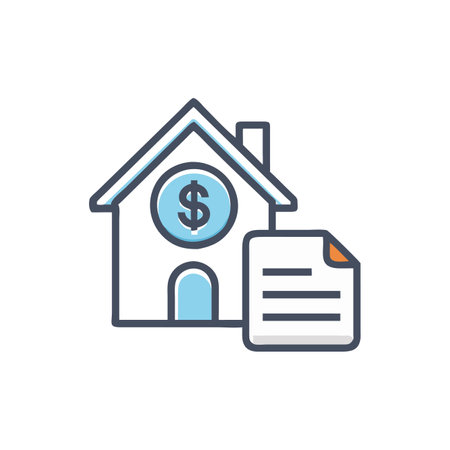1. Understanding the UK Rental Business Landscape
The UK rental property sector is both dynamic and complex, influenced by evolving legislation and diverse market forces. Landlords and letting agents operate within a variety of legal structures, each with distinct implications for accounting and tax compliance. Most commonly, landlords may choose to own properties as individuals, through partnerships, or via limited companies—a decision that affects everything from profit extraction to liability exposure. Letting agents, acting as intermediaries between landlords and tenants, typically structure their businesses as limited companies or sole traders. The prevalent business models in the sector include buy-to-let investments, houses in multiple occupation (HMOs), and build-to-rent schemes. Each model brings unique financial considerations and regulatory requirements, making it essential for property professionals to select accounting methods tailored to their specific operational structure. A sound understanding of these foundational elements is the first step towards optimising your rental business’s financial health and ensuring long-term compliance with UK law.
Overview of Accounting Methods in the UK
When operating a rental business in the UK, selecting the right accounting method is crucial for compliance and financial clarity. The two main accounting approaches permitted by HM Revenue & Customs (HMRC) are the cash basis and the accruals (traditional) basis. Each method has distinct requirements and implications for your record-keeping and tax reporting obligations.
Main Accounting Methods Available to UK Rental Businesses
| Accounting Method | Description | Eligibility Criteria | Key Considerations |
|---|---|---|---|
| Cash Basis | Income and expenses are recorded when money is actually received or paid out. | Available to most individual landlords and partnerships with rental income below £150,000 per year. | Simplifies accounting but may not match income/expenses to the period they relate to. Not suitable if you have high-value stock or need detailed matching of costs. |
| Accruals Basis (Traditional) | Income and expenses are recorded when they are earned or incurred, regardless of when cash changes hands. | Compulsory for companies and available to all landlords. Required if annual rental income exceeds £150,000 or if cash basis is inappropriate. | Provides a more accurate picture of profitability. More complex, requires careful tracking of outstanding invoices and bills. |
The Cash Basis in Practice
This method is particularly popular among smaller landlords due to its simplicity. Under cash basis, you only need to account for rent received and expenses paid within your accounting period. However, certain items such as mortgage interest restrictions must still be considered separately under current tax rules.
The Accruals Basis: When Detail Matters
Larger rental portfolios or landlords operating through limited companies often opt—or are required—to use the accruals basis. Here, all income and expenditure must be matched to the period they relate to, which can provide greater insight into long-term profitability but demands more rigorous bookkeeping and understanding of accounting standards.

3. Key Legal and Tax Considerations
When selecting an accounting method for your UK rental business, it is vital to consider the relevant legal and tax frameworks. The HM Revenue & Customs (HMRC) prescribes specific guidelines that directly influence how landlords must report their rental income and expenses. Notably, the introduction of the cash basis as the default accounting method for most individual landlords from April 2017 marked a significant shift in compliance requirements. Under current HMRC rules, landlords with total property income below £150,000 per year can typically use the cash basis, which allows them to record income and expenses when money actually changes hands. However, those exceeding this threshold or operating through a company must adhere to the traditional accruals (GAAP) basis, matching income and expenses to the period they relate to rather than when transactions occur.
Recent updates have also tightened reporting obligations, especially under Making Tax Digital (MTD) initiatives, which aim to streamline digital record-keeping and quarterly reporting. These changes necessitate careful consideration of how each accounting method impacts compliance workload and accuracy. Additionally, certain types of expenditure—such as mortgage interest relief—are subject to evolving tax treatment, affecting allowable deductions depending on the chosen accounting method. Landlords should pay close attention to these nuances and regularly review HMRC updates to ensure their approach remains compliant and optimises tax efficiency within the confines of UK law.
4. Pros and Cons: Cash Basis versus Accruals
When selecting the most suitable accounting method for your UK rental business, it is essential to weigh the respective benefits and drawbacks of the cash basis and accrual accounting methods. Each approach has unique implications for landlords, particularly in terms of tax efficiency, administrative burden, and financial clarity. Below is a comparative overview with practical examples relevant to UK property owners.
| Aspect | Cash Basis | Accruals |
|---|---|---|
| Definition | Income and expenses are recognised when money is received or paid out. | Income and expenses are recognised when they are earned or incurred, regardless of payment date. |
| Simplicity | Simple to operate, ideal for landlords with straightforward rental income. | More complex; requires careful record-keeping and accounting knowledge. |
| Tax Timing | Potentially delays tax on rental income until received; useful if tenants pay late. | Tax due on income invoiced, even if not yet received; may increase short-term tax liability. |
| Suitability | Best for individual landlords or partnerships with annual rental income below £150,000 (as per HMRC rules). | Essential for limited companies, large-scale landlords, or when seeking detailed financial analysis. |
| Practical Example | If a tenant pays December’s rent in January, it is recorded as January’s income under cash basis. | The same rent would be recorded as December’s income under accruals, matching the period earned. |
| Financial Planning | Makes it easier to track actual cash flow but may obscure debts or outstanding liabilities. | Presents a clearer picture of overall profitability and obligations but requires more administration. |
| Pension Contributions & Finance Applications | May not fully reflect true financial position; can complicate mortgage applications where lenders require accrual-based accounts. | Generally preferred by lenders due to comprehensive view of finances; better for long-term planning and investment decisions. |
Key Takeaways for UK Landlords
The cash basis method offers simplicity and can be tax-efficient for smaller landlords or those managing fewer properties. However, it may not provide a complete view of your business’s health. In contrast, the accruals method, though more demanding administratively, gives a truer representation of profitability and obligations—vital for scaling up your portfolio or securing finance. Your choice should reflect both your current scale and future ambitions within the UK property market. Always consider consulting a qualified accountant familiar with landlord taxation before making your final decision.
5. Selecting the Right Method for Your Rental Business
When determining the most appropriate accounting method for your UK rental business, it is essential to consider several key factors tailored to your specific circumstances as a landlord. The choice between cash basis and accrual accounting can significantly impact your financial reporting, tax obligations, and day-to-day management.
Assessing Your Portfolio Size and Structure
If you are an individual landlord with a relatively small portfolio—such as a few residential buy-to-let properties—the cash basis may offer simplicity and ease of use. This method is especially popular among landlords whose annual rental income falls below the £150,000 threshold set by HMRC. For those managing larger portfolios or operating through a company structure, the accrual method might be more suitable due to its alignment with corporate accounting standards and enhanced ability to match income and expenses accurately over time.
Type of Rental Properties
The nature of your rental properties also plays a role in your decision. Residential lettings often benefit from straightforward cash accounting, while commercial properties or mixed-use portfolios may require the more detailed approach afforded by accrual accounting, particularly when dealing with complex leases, service charges, or staged rental payments.
Future Growth and Flexibility
Consider your long-term business objectives. If you anticipate expanding your portfolio or transitioning from individual ownership to a corporate structure, choosing accrual accounting from the outset can provide continuity and scalability. Conversely, for landlords seeking minimal administrative burden, cash basis offers flexibility but may require reassessment as the business grows.
Personal Preferences and Administrative Resources
Your comfort level with bookkeeping and the resources available for managing accounts are crucial. Some landlords prefer hands-on control with basic spreadsheets under the cash basis, while others invest in professional accountancy support or property management software compatible with accrual methods.
Professional Guidance
Ultimately, consulting a qualified accountant or letting agent with experience in UK property law can help ensure that your chosen method not only complies with HMRC requirements but also aligns with your business goals. Regularly reviewing your accounting approach as regulations evolve or your portfolio changes is advisable for ongoing compliance and efficiency.
6. Next Steps: Implementing Your Chosen Accounting Method
Once you have selected the most suitable accounting method for your UK rental business, it is crucial to ensure a smooth transition and maintain compliance with all relevant regulations. Below is practical advice tailored for UK landlords embarking on this process.
Transitioning to a New Accounting Method
If you are switching from one accounting method to another, such as moving from cash basis to accrual accounting, start by thoroughly documenting your financial records up to the transition date. You may need to consult with a qualified accountant or bookkeeper familiar with UK property tax rules to help reconcile opening balances and ensure consistency between your old and new records.
Compliance Tips
Remain mindful of HMRC requirements regarding rental income reporting and allowable expenses. Always keep accurate records of rent received, deposits held, mortgage interest, repairs, and other deductible expenses. For landlords operating as limited companies or with multiple properties, consider using approved accounting software compatible with Making Tax Digital (MTD) regulations. Regularly review guidance from HMRC and update your processes accordingly.
Resources for Ongoing Financial Management
Leverage reputable resources such as the National Residential Landlords Association (NRLA), professional accounting bodies, and government websites for updates on tax law changes. Investing in landlord-focused bookkeeping tools can streamline record-keeping and reporting. Schedule annual reviews with your accountant to stay compliant and optimise your tax position, ensuring that you adapt promptly to any legislative changes affecting UK rental businesses.

